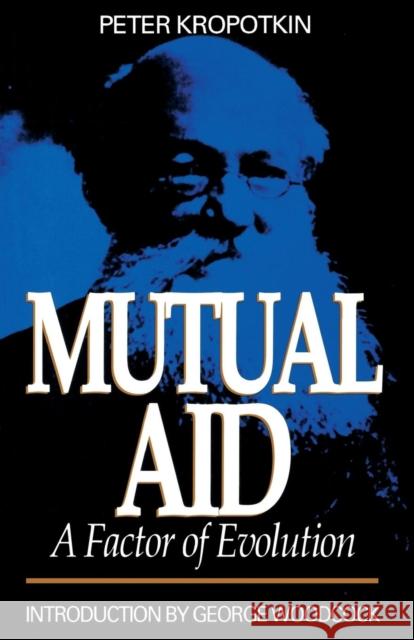Mutual Aid - A Factor of Evolution » książka
Mutual Aid - A Factor of Evolution
ISBN-13: 9780921689263 / Angielski / Miękka / 1996 / 416 str.
Mutual Aid - A Factor of Evolution
ISBN-13: 9780921689263 / Angielski / Miękka / 1996 / 416 str.
(netto: 136,35 VAT: 5%)
Najniższa cena z 30 dni: 141,33 zł
ok. 22 dni roboczych.
Darmowa dostawa!
Introduction by George Woodcock In Mutual Aid, which was first published in 1903, the renowned geographer applies his explorations of Eastern Asia and his study of wild-animal behaviour to a critical examination of the theory of evolution. His arguments anticipate in a remarkable way the contention of contemporary ecologists that the world of nature is one of interdependence rather than strife. Born in 1942 into an ancient military family of Russian princes, Peter Alexeivich Kropotkin was selected as a child for the elite Corps of Pages by Czar Nicholas I himself. Shortly before his death in 1921, Kropotkin had moved so far from his aristocratic beginnings and had attained such stature as a libertarian leader that he could with with impunity to Lenin, "Vladimir Ilyich, your actions are completely unworthy of the ideas you pretend to hold." Kropotkin provides a potent argument for anarchism by showing that people tend to cooperate spontaneously and that the state destroys this natural inclination towards mutual aid by strangling initiative with the dead hand of regulation. With the exception of his memoirs, this is Kropotkin's best-known work, and it is widely regarded as his masterpiece. It forms the cornerstone of his philosophy, and constitutes the most successful attempt by any writer to put anarchism on a scientific foundation. Mutual Aid is still the best refutation of the Darwinian thesis of survival of the fittest. George Woodcock is one of Canada's leading men of letters and bographer of such monumental figures such as Ghandi, Aldous Huxley, George Orwell, and Pierre-Joseph Proudhon. His introduction to Mutual Aid throws a modern light on the significance and scope of Kropotkin's contribution.
Introduction by George WoodcockIn Mutual Aid, which was first published in 1903, the renowned geographer applies his explorations of Eastern Asia and his study of wild-animal behaviour to a critical examination of the theory of evolution. His arguments anticipate in a remarkable way the contention of contemporary ecologists that the world of nature is one of interdependence rather than strife. Born in 1942 into an ancient military family of Russian princes, Peter Alexeivich Kropotkin was selected as a child for the elite Corps of Pages by Czar Nicholas I himself. Shortly before his death in 1921, Kropotkin had moved so far from his aristocratic beginnings and had attained such stature as a libertarian leader that he could with with impunity to Lenin, “Vladimir Ilyich, your actions are completely unworthy of the ideas you pretend to hold.” Kropotkin provides a potent argument for anarchism by showing that people tend to cooperate spontaneously and that the state destroys this natural inclination towards mutual aid by strangling initiative with the dead hand of regulation. With the exception of his memoirs, this is Kropotkin's best-known work, and it is widely regarded as his masterpiece. It forms the cornerstone of his philosophy, and constitutes the most successful attempt by any writer to put anarchism on a scientific foundation. Mutual Aid is still the best refutation of the Darwinian thesis of survival of the fittest. George Woodcock is one of Canada's leading men of letters and bographer of such monumental figures such as Ghandi, Aldous Huxley, George Orwell, and Pierre-Joseph Proudhon. His introduction to Mutual Aid throws a modern light on the significance and scope of Kropotkin's contribution.











